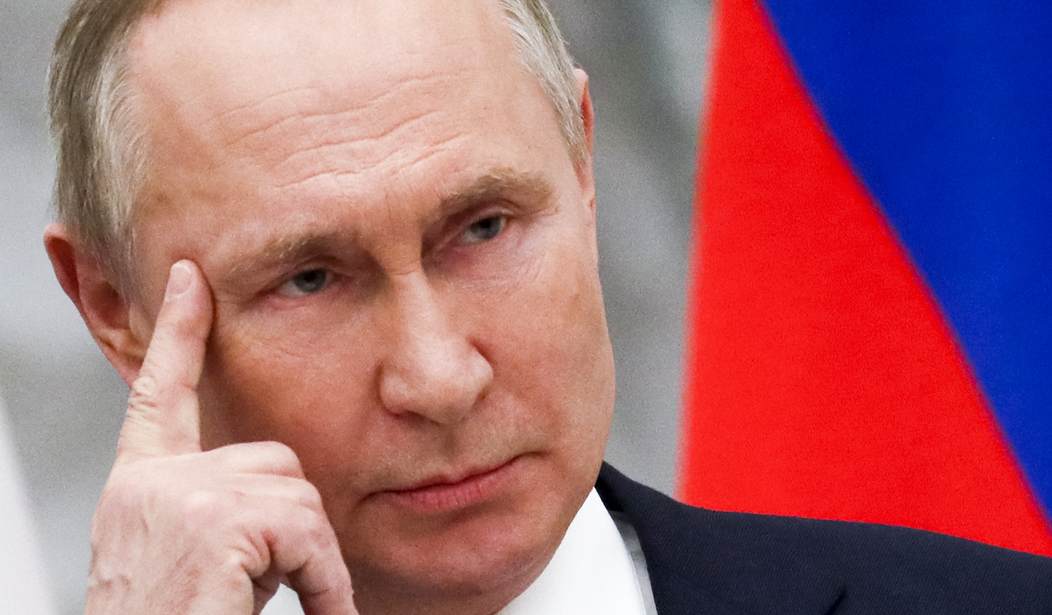Despite cracking down on media outlets and forcing them to disseminate only the Kremlin-approved messaging about his military offensive against Ukraine, Russian President Vladimir Putin does not seem to have as tight a stranglehold on the narrative as he would like. Indeed, it appears that over the long term, the Russian populace might still be consuming information that contradicts what his government is propagating.
Putin has not only tightened his grip on news media networks in Russia, he has also blocked Twitter and Facebook — to prevent the citizenry from viewing information coming from outside the country. He has also prevented Russians from uploading videos to TikTok.
Russian news outlets are now being forced to refer to the invasion as a “special military operation” and to tell their audiences that the footage showing the bombing of Ukrainian cities is fake news. The Kremlin is also compelling these networks to paint a rosy picture of Russian forces rescuing Russian-speaking people from Ukrainian “Nazis.” This isn’t the first time, of course. Putin has cracked down on media reportage several times in the past.
However, according to a recent Politico report, the Russian leader’s actions might be in vain. Author Brian Schafer explained:
But information technology has gained a significant toehold in Russia, making it difficult for the state to blot out the messages it disdains, and the country’s younger citizens have been exposed to too many Western experiences through travel and media to ever swallow whole government propaganda again. Whether he knows it or not, Putin seems doomed to lose an extended propaganda war at home.
Schafer points out that today’s Russia is nothing like it was in the old days – the government can’t completely suppress information as it could in the 1980s any longer. “For almost three decades now, curious Russian people have consumed the international press and learned how manipulative official media can be,” he noted, also pointing to the fact that many Russians have attended universities in the Western world, “which has given them the critical perspective that might have been denied to their parents.”
The author then points to the reality that Putin’s narrative about heroic Russian soldiers fighting against the forces of Ukrainian Nazi evil could easily fall apart after citizens communicate with relatives in Ukraine, who will tell them a wholly different story. He writes:
But how well can his pitch — I’m waging war to protect Russian-speaking people in Ukraine and bombing only military targets — work on Russian citizens who have family and friends in Ukraine? They might believe Putin in the short term, but how will they react when their Ukrainian familiars phone them the truth? For them, it will land as solidly as the idea that the United States had cause to launch an invasion of Quebec because English-speakers need protection from rampaging Quebecois. It’s easier to stop scuttlebutt spread by media than it is scuttlebutt spread by family and friends.
Another monkey wrench in Putin’s propaganda machine is the proliferation of VPN services, which allow people to mask their locations, thereby circumventing attempts to prevent them from accessing the internet.
Reuters reported:
Demand for Virtual Private Networks (VPNs) that encrypt data and obscure where a user is located has soared, data from monitoring firm Top10VPN showed, peaking 354% higher in Russia on Sunday when compared to the daily average from Feb. 16-23.
Of course, this still carries a level of risk for Russians seeking to find the truth about the conflict. Schafer writes:
Putin possesses police-state powers that he could deploy. He could kerosene the Russian internet and set it aflame. He could jam the BBC’s revived shortwave service into Russia. He could try to ban VPNs, but not even China has done that. He could upgrade the monitoring of internet traffic. Or he could expand the “spot checks” of protesters’ smartphones, a tactic used at anti-war rallies in Moscow, in his search for dissidents. He could even hunt down and incarcerate Russians who voice their opposition to the war, sotto voce, in the comments sections of restaurant websites.
Nevertheless, Russians in 2022 are living in a markedly different world from their parents and grandparents. There are far more ways to work around a tyrant’s efforts to prevent outside information from making it into the country.
Schafer’s assessment seems apt; Putin can only hold back the tide for so long. There are already anti-war protesters speaking out against the war, even though they have promptly been arrested. Elements inside the Kremlin have defied Putin by helping Ukrainian President Volodymyr Zelensky evade three alleged assassination attempts. The question is: How much longer will Putin be able to keep the truth from the people under his rule?














